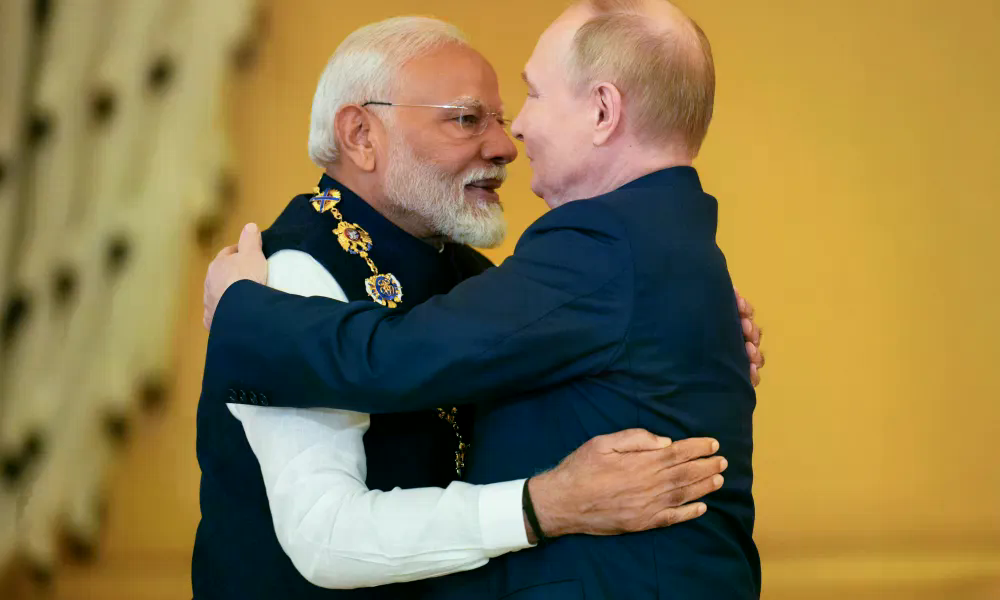India’s imports of Russian oil ‘not acceptable’, says top Trump aide

A senior U.S. official has accused India of financing Russia’s war in Ukraine by purchasing oil from Moscow, as the Trump administration intensifies pressure on New Delhi to sever its energy imports from Russia.
Stephen Miller, deputy chief of staff at the White House and a key advisor to former President Donald Trump, stated during an interview with Fox News that it is unacceptable for India to continue funding the conflict through oil purchases. “What he (Trump) said very clearly is that it is not acceptable for India to continue financing this war by purchasing the oil from Russia,” Miller said.
India is currently the second-largest buyer of Russian oil, following China, with over 30% of its fuel supply coming from Moscow. This represents a significant shift from pre-2022 levels, when less than 1% of India’s oil imports came from Russia. The U.S. has imposed a 25% tariff on Indian products in response to New Delhi’s continued purchases of military equipment and energy from Russia, with further penalties threatened if the trend continues.
Miller emphasized the surprising nature of India’s role in Russian oil trade, stating, “People will be shocked to learn that India is basically tied with China in purchasing Russian oil. That’s an astonishing fact.” However, he acknowledged the strong relationship between Trump and Indian Prime Minister Narendra Modi, describing it as “tremendous.”
In a recent post on his Truth Social platform, Trump highlighted the “friendship” between the U.S. and India while announcing the tariffs on Asia’s second-largest economy. He criticized India for being a major buyer of Russian energy, despite global calls for Russia to halt its aggression in Ukraine.
“I don’t care what India does with Russia. They can take their dead economies down together, for all I care,” Trump wrote.
The Trump administration has also threatened to impose 100% tariffs on U.S. imports from countries that purchase Russian oil unless Moscow reaches a significant peace agreement with Ukraine. Additionally, the administration has criticized India for its membership in BRICS, a group that includes Russia and China.
Analysts suggest that the administration’s tough stance may serve multiple purposes, including pressuring Russia and influencing India’s policies during ongoing trade negotiations. Reducing the U.S.-India trade deficit, which stands at $45 billion, is a key objective for Trump.
Despite U.S. threats, Indian government sources confirmed to Reuters that New Delhi will continue to import oil from Russia. The Ministry of External Affairs stated that India’s relationship with Russia is “steady and time-tested” and should not be viewed through the lens of third-party interests.
India’s ties with Russia date back to the Soviet era, and Russia remains a major supplier of both oil and defense equipment. According to a March report from the Stockholm International Peace Research Institute (SIPRI), Russia is still the largest arms supplier to the Indian Armed Forces.
Prime Minister Narendra Modi visited Moscow last year to meet Russian President Vladimir Putin, reflecting India’s efforts to maintain balanced relations with both the West and Russia. Subsequent meetings have taken place at international forums.
Historically, India sourced most of its crude oil from the Middle East. However, this changed after Russia’s invasion of Ukraine in February 2022, as India began purchasing discounted Russian oil amid Western sanctions against Moscow. Imports surged from 68,000 barrels per day in January 2022 to 1.12 million barrels per day by June of the same year, peaking at 2.15 million barrels per day in May 2023.
At one point, Russian oil accounted for nearly 40% of India’s imports, making Moscow the largest supplier of crude to New Delhi, according to data from Kpler, a data analytics firm.
India maintains that its oil imports from Russia comply with legal norms and claims that the purchases have helped stabilize global crude prices.


